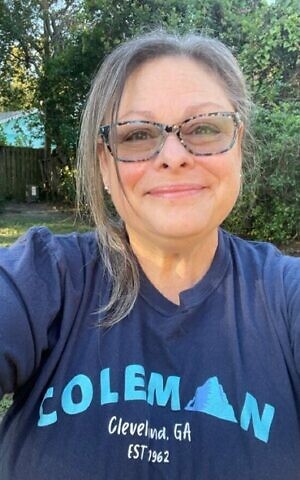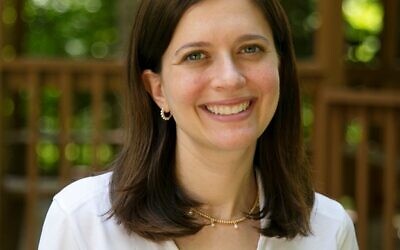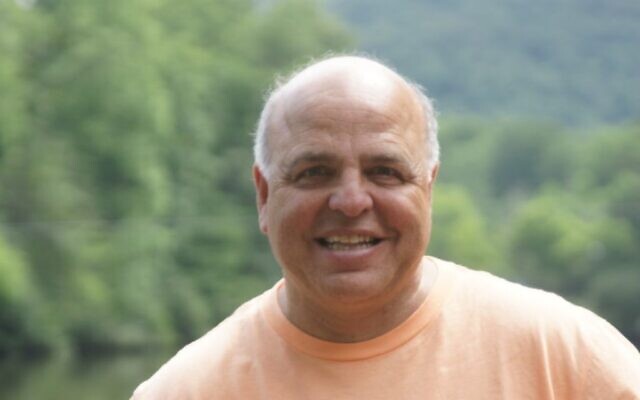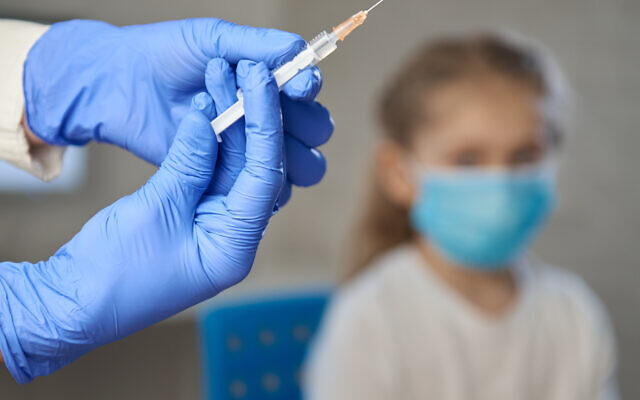Should COVID Vaccinations Be Required for Camp?
Five popular Jewish summer camps independently reached the same conclusion about the best way to protect campers and staff.
Dave Schechter is a veteran journalist whose career includes writing and producing reports from Israel and elsewhere in the Middle East.
COVID-19 has been a thorn in the sandals of Jewish summer camp directors.
In 2020, the original SARS-CoV-2 virus wiped out the overnight camp season and delayed day camp openings. The Delta variant was identified in the United States weeks before the 2021 season. In 2022, even as the Omicron variant may be waning, camps are taking no chances.
The directors of five popular Jewish overnight camps told the AJT that, this summer, campers and staff will be required to present evidence of vaccination in line with recommendations for their age by the Centers for Disease Control and Prevention (CDC). The five were Camp Barney Medintz, Camp Coleman, and Camp Ramah Darom, in Georgia, and Camp Judaea and the 6 Points Sports Academy, in North Carolina.

In terms of Jewish day camps, as of late February, the Marcus Jewish Community Center of Atlanta had not yet determined its COVID vaccination policies, said Keely Sime, the MJCCA chief marketing officer.
In The City Camps, which has day camp locations in Decatur and Sandy Springs, has mandated that “all age-eligible summer campers, staff and invited guests must be fully vaccinated against COVID-19.”

Ashley Conant, director of In the City Camps, is planning for 680 campers and 175 staff this season. “We know the data and respect everyone’s personal choice, but this is our policy,” she said. “In the summers of 2020 and 2021 we were able to provide a safe summer camp experience for all of our campers and staff without any COVID breakouts. We are very proud of that.”
The overnight camps made their vaccination policy decisions independently but arrived at the same conclusion. A search online found most Jewish overnight and day camps across the United States requiring COVID vaccinations.

Lori Zeligman, director of Camp Judaea, in Hendersonville, N.C., said, “Since all of us do have the same stance, it definitely makes it a lot easier,” in terms of a consistent message to parents.
“In speaking with our medical advisory team, their recommendation to us was that we respect everyone’s right to do what they think is right for their kids, but in our opinion, to enjoy camp and have the safest possible community at camp this summer, we have to require that everyone is vaccinated,” said Michael Drucker, director of Camp Barney Medintz, the MJCCA overnight camp northwest of Cleveland, Ga.

The overnight camp season begins in mid-June. “The hardest thing for camp directors right now is all the contingency planning. You have to be ready for any kind of scenario,” said Bobby Harris, director of the Southeast region and Israel initiatives for the Foundation for Jewish Camp (FJC).
Harris is well acquainted with COVID and contingency planning. Prior to joining the FJC in October, he was the long-time director of the Union of Reform Judaism’s (URJ) Camp Coleman, located about five miles up U.S. 129 from Camp Barney.
His successor is Amy Smyler McFarland, who has been a counselor, assistant director, and associate director at Camp Coleman, as well as a consultant for the FJC. This summer she expects 840 campers and staff across the sessions. “Living through last year, I wouldn’t use the word maddening,” Smyler McFarland said, responding to a reporter’s suggestion. “It was our reality. Today we have a lot of confidence because we were able to pull it off last summer. This time around we have so much more information. We’re actually sitting in a much better place than we were a year ago.”
That information comes from the CDC, the various Jewish movements with which the camps are affiliated, the medical advisory teams that the camps consult for guidance, and from each other. The directors and facilities directors from the five overnight camps recently toured each other’s sites, seeing the physical layouts, as well as discussing programming and common challenges.

“We have a real sense of collegiality and a true team,” said Anna Serviansky, director of Camp Ramah Darom, located outside of Clayton, Ga. Serviansky and her counterparts talk often, and she credited Harris with organizing the visits to the five camps.
“What people don’t understand, unless they are in the business, is that you have a lot of responsibility to take care of upwards of 750 people at a time, to make sure they are healthy and safe, and having a good time,” Serviansky said. “We all care about Jewish camp and we all want each other to be successful and have as many kids go to Jewish camp as possible,” she said. “This is what we believe in.”
She echoed Smyler McFarland’s feelings about comparing 2021 and 2022. “We can run camp in a very transmissible variant setting, like we did last summer, and run camp safety. We know that we can pivot quickly because we know how to run camp in the middle of a pandemic,” Serviansky said. “We aren’t talking about COVID in the same way we were talking about it last year, because we have policies and procedures in place that we know work.”

The URJ 6 Points Sports Academy will welcome about 830 campers and 125 staff in Asheville, N.C. “We’re all doing the right thing for our campers and our community,” camp director Danny Herz said. “No matter what, this summer the commitment will be doing everything to keep the community safe. We know we can do it. We did it last summer. And we know things are going to change,” he said. As an example, Herz noted that while the 2022 camp season begins in four months, it was just four months ago that the Omicron variant was identified.
“It’s just the unknown that’s scary, but I think parents have made a commitment to wanting their kids to have this amazing Jewish camp experience,” Herz said.
Zeligman, who will host some 750 campers and 200 staff at Camp Judaea, said, “What concerns me the most is if the CDC changes their language around vaccination. We’ve put it out to our families that we are going off the guidance from the CDC and the American Academy of Pediatrics.”

Representatives of the CDC who spoke to a Feb. 2 webinar hosted by the American Camp Association gave no indication that a change is in the offing. Neha Cramer, who leads the CDC’s school unit, said, “We all have this goal that we want camps running, in a way that’s as normal as possible, but also as safe as possible. Camps are a vital piece for children’s mental health and, quite frankly, for their parents’ mental health as well.”
The overnight camp directors acknowledged receiving what one called “limited pushback” to the COVID vaccination requirement.
In a recent installment of a series from the American Medical Association, called “What Doctors Wish Patients Knew,” Dr. Joanne Loethen, an internal medicine and pediatrics physician in Kansas City, Missouri, said: “I completely understand if parents have hesitations about any new medical device, drug, vaccine that their child is potentially eligible to get. What I can say is we have studied thousands of kids and hundreds of thousands have now gotten this vaccine. We know that it’s safe and effective. And when you look at the numbers, it certainly supports the vaccine because of its safety and efficacy against COVID 19.”
Note: According to the CDC, no vaccine yet has been authorized for children 4 and younger. The Pfizer/BioNTech vaccine is authorized for children in the 5-11 and 12-17 age groups. The Pfizer/BioNTech and Moderna two-dose vaccines and the single-dose Johnson & Johnson vaccine are authorized for people 18 and older. The CDC website recommends that everyone age 12 and older get a booster shot and that those receiving the J&J vaccine get a booster shot of Pfizer/BioNTech or Moderna at least two months later.
- Dave Schechter
- Education
- camp
- Local
- Camp Barney Medintz
- Camp Coleman
- Camp Judea
- Camp Ramah
- Camp Ramah Dorom
- Marcus Jewish Community Center of Atlanta (MJCCA)
- COVID
- COVID-19
- summer camp
- Vaccines
- In the City Camp
- decatur
- Sandy Springs
- Ashley Conant
- Lori Zeligman
- Michael Drucker
- Amy Smyler McFarland
- CDC
- Center for Disease Control
- Anna Serviansky
- 6 Points Sports Academy
- Danny Herz
- American Academy of Pediatrics
- omicron
- American Camp Association
- Pfizer
- BioNTech
- Johnson & Johnson




comments